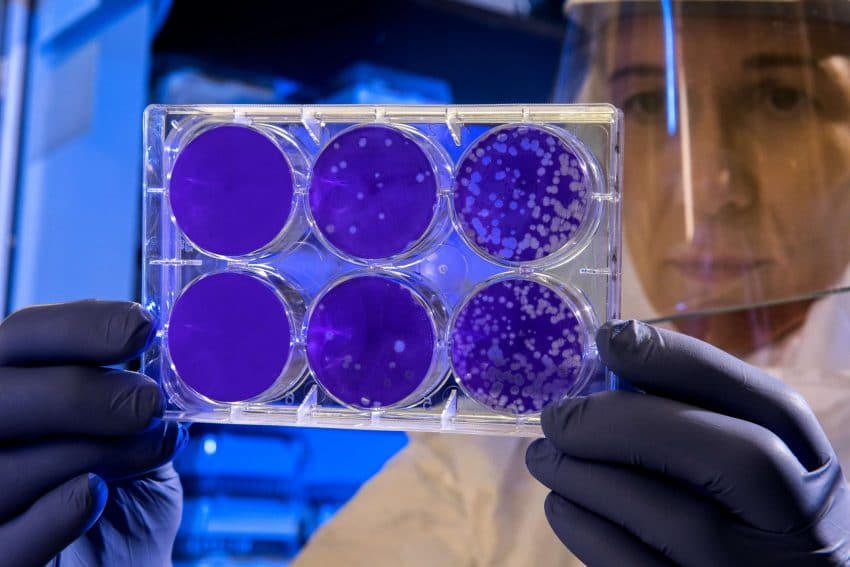What Is An MPH Degree And How Can It Lead You To Success?
Updated: February 20, 2024
Published: June 12, 2020

Getting an MPH degree is one of the steps to a successful career in public health. What is MPH? Read on to find out!
What Is An MPH Degree?
MPH stands for Master’s in Public Health.
These are multidisciplinary degrees that combine areas of public health practice. It is a graduate-level degree that prepares students to work in a community or worldwide to promote violence prevention, sanitation, information about disease, and other topics related to health, safety, and wellness.
Why Get An MPH Degree?
There are many reasons to get an MPH degree. First, it is a rewarding career where you are helping others. A master’s in public health also prepares you for a wide variety of jobs and careers. MPH grads can work for non-profits, government agencies, educational facilities, and in healthcare settings.
There is a growing need for employees with MPH degrees — in the healthcare industry, job growth of 14% is expected over the next 10 years. In addition, salaries for MPH graduates are higher than average as well, and experienced healthcare workers can make upwards of $100,000 per year.

Photo by K. Mitch Hodge on Unsplash
Are You A Suitable Candidate?
If you enjoy helping others, want to make a difference out in the field, are interested in public policy and research, and enjoy educating others, you are an excellent candidate for the MPH degree. If you want to use your skills, passion, and learned knowledge to make a difference in the world, a career in public health might be for you.
If you want to help others, but aren’t interested in research, data analysis and statistics, you may be better suited for a different career path such as social work or education.
Requirements For The MPH Degree
1. Admissions
Each school or program may have slightly different requirements for admissions, but generally you will be required to have a bachelor’s degree, and you may be asked to submit a CV, letters of recommendation, an essay, and entrance exam scores.
2. Curriculum
Most MPH programs will take two years if you take courses full time each semester, for a total of 42 credits. The curriculum will consist of core courses from several disciplines such as program management, epidemiology, health policy, and more. You may also be able to specialize in an area such as policy, research, global issues, and others.
3. Capstone
Some MPH programs may require you to complete a capstone project as part of your degree. A capstone is a culmination of your learned knowledge during your degree and usually consists of research, a paper, and a presentation to a deciding committee.
4. Practicum Experience
Other master’s in public health programs will require practicum experience for graduation. This is an excellent way for students to prepare for real work in the field while completing a degree. The practicum may be in a healthcare facility, with a non-profit organization, or government agency where you will have real-world experiences and get college credit for it.
 Photo by CDC on Unsplash
Photo by CDC on Unsplash
What Will You Learn In An MPH Degree?
In a MPH degree, you will learn epidemiology, health policy, biostatistics, management, behavioral and social sciences, and environmental health.
In addition to content knowledge, you will also learn the skills which will help you succeed in the field. This can include research, community assessment, grant writing, and communication.
Students will overall get an understanding of how behavior and environmental factors affect health and health policy. Students also learn how to bring positive change in these areas to the world.
Public Health Job Outlook
The job outlook for MPH graduates is very bright. According to the Bureau of Labor Statistics, the healthcare field in general is expected to grow 14% between 2018-2028. There are many companies and organizations that are looking for MPH graduates, and the highest need is usually for health educators and social/policy workers.
MPH Careers And Salaries
There are a wide variety of careers in public health to suit all interests and abilities, many of which offer attractive salaries. The average graduate with a master’s degree in public health makes $64,000 per year.

Photo by CDC on Unsplash
Common Jobs For MPH Grads Include:
1. Biostatistician
- Average salary: $76,600
Biostaticians use statistical analyses for biological data for a range of purposes. They may work for the federal government, scientific research, colleges and universities, and state governments.
2. Epidemiologist
- Average salary: $63,900
Epidemiologists work to uncover the cause, effects, and spread of disease. They often work for non-profit organizations, healthcare companies, pharmaceutical companies, and government agencies.
3. Health Educator
- Average salary: $45,500
Health educators design, implement, and oversee health education programs within a community. They may work for non-profits, government agencies, hospitals, religious organizations, and social assistance programs.
4. Health Administrator
- Average salary: $66,500
Health administrators’ job duties vary greatly depending on the institution they work with, but they may be responsible for leading healthcare staff and overseeing health project management.
5. Environmental Health Scientist
- Average salary: $55,400
Environmental health scientists use their knowledge and skills to protect both people and the environment from harm. They may identify problems and create solutions to eliminate or reduce environmental hazards.
Fast Facts
- Public health is dynamic and diverse. Those who work in public health come from a wide range of educational backgrounds and interests.
- Public health workers exist to help others and bring positive change to people in areas of health and public safety.
- Public health is both rewarding and challenging. While working on complex problems that may not have obvious solutions, you will also be a part of the team working to bring these solutions to fruition.
Online Master’s In Public Health
There are many master’s in public health programs offered today that are flexible, fully online, and adequately prepare you for a career in public health.
Haven’t completed a bachelor’s degree yet? If studying online appeals to you, check out University of the People’s Bachelor’s in Health Sciences degree. It is fully online, accredited and tuition-free! Earn your degree without student debt, and be prepared to work in public health with a bachelor’s degree from UoPeople.

Photo by Muhammad Rizwan on Unsplash
What Is The Difference Between An MSPH And MPH?
MPH stands for Master’s in Public Health, while MSPH stands for Master’s of Science in Public Health. These may seem like the same thing, but there are some differences between the two degrees.
While both study the same foundational topics, an MSPH is primarily academic in focus, and will prepare students for further academic work such as a doctoral degree or higher education teaching. An MPH, on the other hand, may offer a more practical approach that prepares students to enter the field after graduation.
The Bottom Line
What is MPH? Here’s what you need to remember — MPH is a master’s degree in public health that will prepare you for a variety of careers in the public health field. Get to know your interests and choose a specialization or path to follow. If you want to work in the health sector and help others, public health is a great choice for you!


 Photo by
Photo by 
